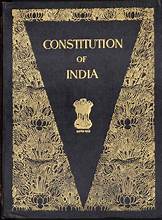Sapna Jacob vs The State of Kerala: Case comment
INTRODUCTION: Sapna Jacob vs The State of Kerala
“The family is the natural and fundamental group unit of society and is entitled to protection by society and the State.” – Article 16(3), Universal declaration of Human Rights.
We, the human race are more social and emotional than any other beings and significantly more dependent upon each other for all our basic needs, our families, moreover being Indian we are hugely dependent on our extended families, socially, emotionally, and often financially. There is no hesitation in saying that we become whatever our family makes us and later provide same to the society.
There is almost no country in the world that doesn’t recognize the importance of families henceforth doesn’t recognise family laws. Almost all countries within their ambit recognise family laws or personal laws to a great extent, for smooth and peaceful working of social structure family laws need to be dealt very carefully and with utmost importance.
India is a diversified country with multiple religions, various family structure, different personal laws and no doubt that the family laws are mostly inclusive and dynamic in nature which makes these particularly very tough to codify. Like it is a very hectic task to define the words like family, Religion, or what constitutes a marriage, or how to determine who is a follower of a particular religion, because the parameters of the conclusion are many and different.
The present case Sapna Jacob vs The State of Kerala[1] deals with some similar kind of question to the law; here the court is trying to figure out that “Who is a Hindu” and “How to determine it.” Though the Hindu family law has been codified to a great extent it is not exclusive in nature, it is dynamic, inclusive and gives space for possibilities. Here in this case court looked down to a broad interpretation of the word Hindu and also tried to lay down that the intention of one for conversion as Hindu should be Bonafide. The court in this case has tried to find out and lay down that what are some conditions under which a child born out of a scheduled caste Hindu woman and a non Hindu can be called as a Hindu. The court, in this case, doesn’t go deep into a traditional approach of defining Hindu but rather looked at the intention of a person to be called as a Hindu.
Also Read: fir-and-the-criminal-justice-syste https://sociallawstoday.com/fir-and-the-criminal-justice-system/m/
FACTS OF THE CASE
- The Petitioner in this case is Sapna Jacob she is a minor girl, therefore represented by her mother. She has approached the Honourable High Court of Kerala under Article 226[2] of Indian Constitution asking the court to direct the writ of mandamus or any other appropriate writ to the respondents. She has tried to contend the fact that she is a scheduled caste Hindu by the virtue of her mother being Hindu and wants a reserved seat in a Medical or Agricultural courses in the State Of Kerala.
- The Defendants here are State of Kerala and Others; they are arguing the fact that Sapna Jacob is not a Hindu and not even a schedule caste falling within the ambit of Article 341[3]. They are arguing the fact that Sapna Jacob don’t fall within the definition of Hindu as laid down by section 2[4] of Hindu marriage Act thereby she can’t plea that she is a schedule caste.
- Uma Jacob, Mother of petitioner is a Hindu by birth and Pulaya by caste, which is a schedule caste but while she was working in a company she met a Christian man, V.M Jacob and married off him. However after marrying she never gave up her religion and never became a baptised Christian. Even after the marriage of the petitioner’s mother continued to be a member of the Hindu religion and has been offering prayers and conducting poojas as a Hindu. Sapna Jacob is the child from the same marriage.
ARGUMENTS OF PETITIONER AND RESPONDENTS
- The petitioner contented before the honourable court that she belongs to a schedule caste as Pulaya caste is included under the schedule caste by the president under Art 341[5] of Indian Constitution However the court agreed to the fact that Pulaya caste is a schedule caste but Court was not satisfied that the petitioner is a schedule caste by the virtue of her birth.
- For the same the petitioner along with the Original Petition produced the copy of the S.S.L.C. (Secondary School leaving Certificate) Book (Page-3) and the certificate issued by the Tahsildar, Kannur and also the letter issued by the Vice-President, Kerala Harijan Samajam to prove that the petitioner is a member of the Scheduled Caste.
- The petitioner also relied on Ext.P7 order, issued by the Government of Kerala, in support of her contention that she is a member of the Scheduled Caste.
- Ext. P 7 Government Order was issued on 25-1-1977 which says that with a view to encourage inter-caste marriage the children born of inter-caste marriages will be allowed all educational, concessions given to Scheduled Caste or Scheduled Tribe communities provided either the father or mother belongs to a Scheduled Caste or Scheduled Tribe community.
- The contention from the respondents is simply that the petitioner by birth is a Christian as her father is a Christian and she never converted to Hindu religion and she has never been brought up as a Hindu by her mother hence she never herself followed Hindu religion so she can’t ask for her mother caste and fall into the category of schedule caste.
QUESTION OF THE LAW
A proper study of case shows that there were two main questions of law in front of the court of justice. These are discussed below.
QUESTION1. Whether the petitioner is a member of Hindu religion or not?
No, the petitioner doesn’t belong to Hindu religion. To understand this we need to understand that the petitioner could claim she is Hindu only under section 2(b) of Hindu marriage Act or Hindu Succession Act[6] which states , “Any child, legitimate or illegitimate, one of whose parents is a Hindu, Buddhists, Jaina or Sikh by religion and who is brought up as a member of the tribe, community, group or family to which such parent belongs or belonged”. This clarify that if a child who is born out of inter-religion marriage in which one of the parent is Hindu would be called as Hindu only if he is brought up as a Hindu, here in this case the mother was Hindu and father was Christian so by birth the petitioner was only Christian and to be hindu she needed to prove that she was brought up as hindu and she followed hindu religion with bona fide intention. However she failed to prove it.
The court took reference of two Supreme Court judgements to first one is Principal, Guntur Medical College v. Mohan Rao[7] and second is C.M. Arumugam v. S. Rajagopal[8] these references helped the court to lay down the fact that if a person seek conversion then he should lead a Hindu way of life and the members of that religion should accept him as member of that community. But here in the present case the petitioner failed to prove that she ever led a Hindu way of life and court held that the petitioner’s name is Sapna Jacob which is a Christian name. Court found no evidence to show that the petitioner ever led a Hindu mode of life.
QUESTION2. Whether the petitioner can claim reservation under Scheduled Caste quota or not?
No, the petitioner can’t claim reservation under Scheduled caste quota because the only ground on which the petitioner could claim the benefit of Scheduled Caste is that her mother is a Scheduled Caste. She relied on the caste certificate issued by the tahsildar and also on certificate by kerala harijan samajh but the court laid down that the father is her real legal guardian and these certificate laid her mother as her legal guardian so these were not taken into consideration as relying evidences and the court said, it is clear that the certificate was obtained by not furnishing true and relevant facts. Court said that only a executive order saying that child born out of intercaste marriage in which one person is Scheduled Caste will make the child SC is not a valid argument hence this doesn’t not make that child Scheduled Caste directly because the reservation for admission to colleges and employment is a constitutional right and if one seeks benefit under the reservation he has to be a member of the Scheduled Caste as defined under Article 341 of the Constitution of India.
JUDGEMENT AND REASONING IN Sapna Jacob vs The State of Kerala
The honourable court kept in notice various points while giving the judgment the first point the court laid down is that the petitioner’s intention to be called as a Hindu was only for getting admitted into the college and a court can find easily that the true intention of men lying behind their acts and can find from the circumstances of a case whether a pretended conversion was really a means to accept and follow that religion. The court said that in the caste certificate issued by the tahsildar instead of the petitioner being described as the daughter of V. M. Jacob she is said as the daughter of Uma. Petitioner’s father who is natural guardian is V. M. Jacob. However in the S.S.L.C[9]. Book her mother is shown as her guardian. So the court said it is clear that the certificate was obtained by not furnishing true and relevant facts. The court looked at the evidence collected by KIRTADS[10] to prepare Ext. P 13 Report also shows that the petitioner and the other members of the family have been leading a Christian life. So the petitioner cannot be said to be a Scheduled Caste.
Court said that the petitioner relied on Ext. P 7 Government Order issued on 25-1-1977 Ext. However the court said that P 7 has been issued to encourage inter-caste marriage and benefit is being given to the Scheduled Castes are extended to the children of inter-caste marriages. That does not mean that the children born out of such marriages would directly become Scheduled Castes as given under the provisions of the Indian Constitution. Court laid down that the reservation for admission to colleges and employment is a constitutional right and if one seeks benefit under the reservation he has to be a member of the Scheduled Caste as defined under Article 341 of the Constitution of India. The petitioner being the daughter of V. M. Jacob is a Christian and she is neither Pulaya by caste nor Hindu by birth. Such a person is not Scheduled Caste and by Ext. P 7 executive order status of Scheduled Caste cannot be conferred on such person.
So the courts in case of Sapna Jacob vs The State of Kerala held in its judgment that Sapna Jacob is not a Hindu and not even a schedule caste, But a Christian.
CONCLUSION Sapna Jacob vs The State of Kerala
It has always been a cumbersome job for Indian judiciary to define who doesn’t come within the ambit of Hindu religion and it is not wrong to say that the definition of Hindu religion from way back is not accurately traceable. However judiciary has tried its best to look back into Hindu religion and give a broad and acceptable approach towards defining it in each case.
In the present case court laid down that it is tough to not add someone within Hindu religion if he claims to be a part of it but judiciary needs to look at the intention and the manner in which a person is intending to be a Hindu. We need to look that whether a person really want to be Hindu through conversion or he just wants to pretend to be Hindu for some benefit.
VIEWS AND SUGGESTION
I strongly believe that it is the most difficult task to lay down that whether someone was brought up as Hindu or not because there is no set parameter under which we can frame this question. However court assumes certain conditions to be fulfilled according to fact and circumstances of different cases. In this case mother was a Hindu and it is tough to believe that mother’s religion had no influence on daughter as from early childhood we learn thing more easily through mother and mothers influence on a child remains the most.
Though my knowledge of Hindu laws is limited but I believe that if a child is not brought up as non Hindu faith, it must be submitted that he is brought up as a Hindu only because there is no set criterion as to how a Hindu child should be brought up. So the question court should be asking is that whether Sapna was brought up as a Christian by her father or family and if not, she should be considered to be brought up as Hindu faith only. Court should have also seen the fact as to whom the daughter was closer because this could be a deciding factor in the case.
The court also failed to understand that Sapna Jacob can be a Hindu name when it said in its judgement that Sapna is a Christian name. We have a famous politician by the name ‘Stalin’ thereby that person doesn’t cease to be Hindu. Thereby this name doesn’t make him a Bolshevik or a Christian.
In Vedas the child born out of inter-caste marriages were akin to Sudras and it is not wrong to believe that in modern law until the society completely accept inter-caste and inter-religious marriages and give a child born out of that marriage a equal status and respect. The child, if asking benefit under the shadow of any laws favouring any of her/his parents should be given that favour to uplift his social status.
The ultimate aim of law should always be justice however it is subjective but we need to go as closer to it as possible.
BIBLIOGRAPHY: Sapna Jacob vs The State of Kerala
https://indiankanoon.org/doc/1716062/
http://www.lawyerservices.co.in/judgments_all_intro_req_01.asp
http://www.legalservicesindia.com/law/article/938/15/Family-Laws-in-India
https://www.jstor.org/stable/40929192?seq=1#page_scan_tab_contents
[1] Sapna Jacob vs The State of Kerala and Ors, AIR 1993 Ker 75.
[2] Article 226 in The Constitution Of India, 1949: Power of High Courts to issue certain writs.
[4] Sapna Jacob vs The State of Kerala
[5] ibid
[6] Sapna Jacob vs The State of Kerala
[7] AIR 1976 SCR (3)1046
[8] AIR 1976 SCR (3) 82
[9] Sapna Jacob vs The State of Kerala
[10] Kerala institute for Research Training & Development studies of Scheduled Castes and Scheduled Tribes https://kirtads.kerala.gov.in/
![]()






Leave feedback about this